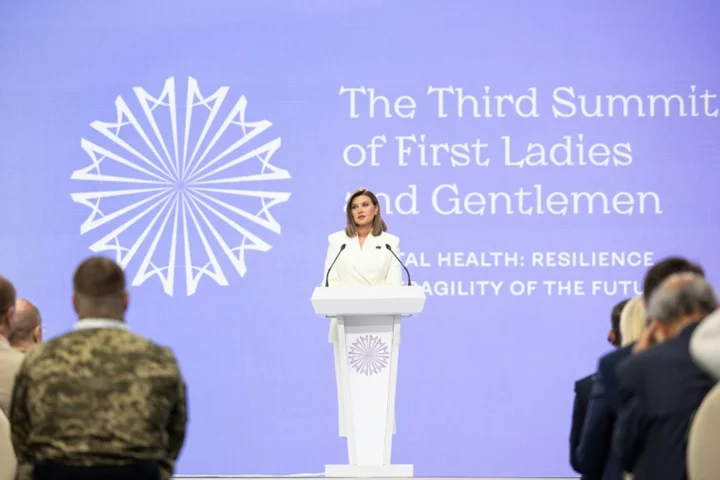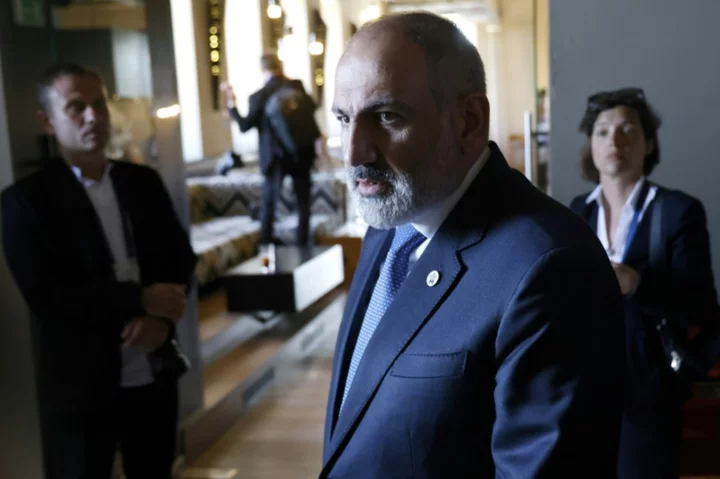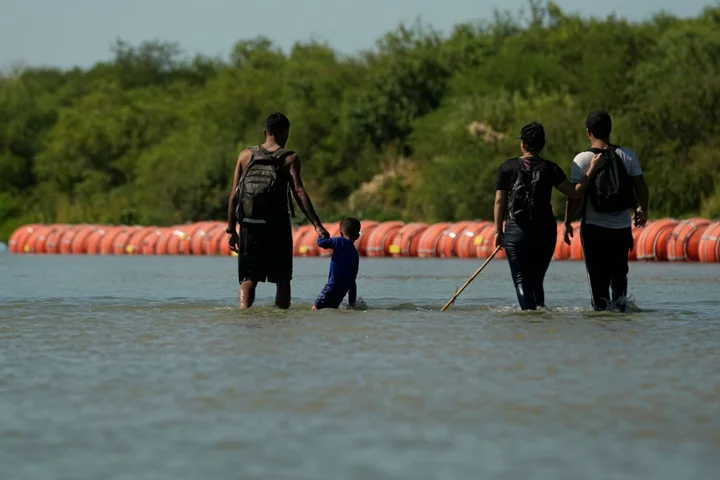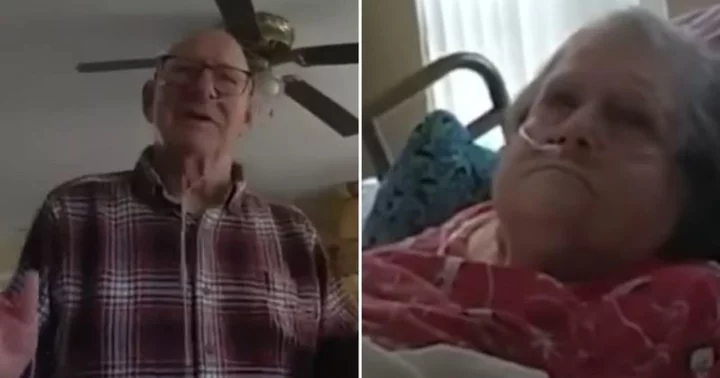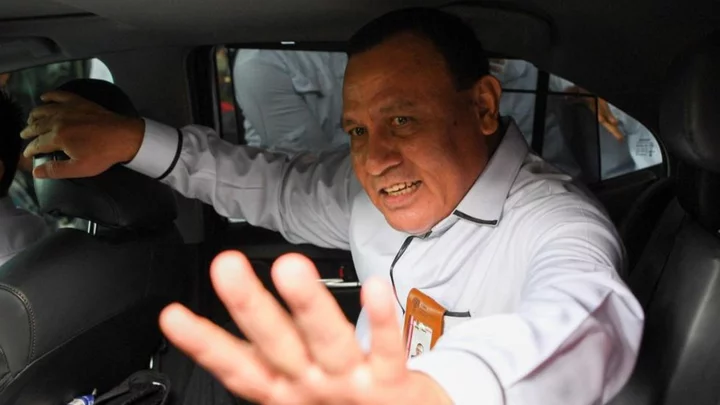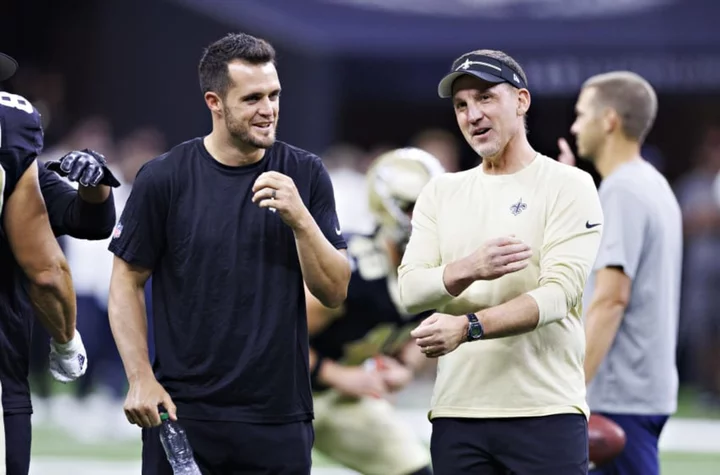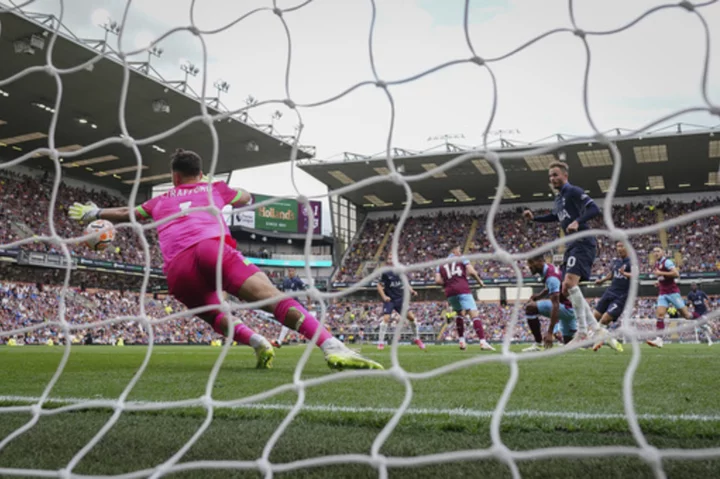The star contingent was high as Ukrainian First Lady Olena Zelenska held a "summit of first ladies and gentlemen" Wednesday, focusing on the stigmatised issue of mental health in the war-torn country.
British comedian Stephen Fry battled with presentation slides, while French intellectual Bernard-Henri Levy lined up for coffee, and US actor and director Sean Penn smoked a cigarette outside.
Zelenska, the wife of President Volodymyr Zelensky, has led a high-profile campaign encouraging Ukrainians to openly discuss mental health problems, titled: "How are you?"
"Ukraine is being strong by showing it has a mental health problem," Fry said at the event in Kyiv's Saint Sophia Cathedral.
To kick off the event, he revealed findings of a survey commissioned for the event, which found only 1 in 50 Ukrainians have received a mental health diagnosis, compared to 1 in 4 in the UK or United States.
Yet one in two Ukrainians feel "emotionally worse" compared to before the Russian invasion, the survey found.
"This raises concern that mental health issues might be underdiagnosed here in Ukraine, or less prioritised," Fry said.
The actor known for comedy roles such as unflappable valet Jeeves, is also president of the UK's largest mental health charity, Mind, and talked at the event about his diagnosis with bipolar disorder and stints in psychiatric care.
- 'Totally visible' -
Fry said he sheltered in a hotel cellar in the early hours of Wednesday as Kyiv woke up to sirens triggered by a Russian attack.
"It was quite exciting -- my first air raid".
He said he had called his mother, who lived through the Blitz in London and expressed her disbelief at the war in Ukraine.
"We had about five minutes of basically sobbing," he said.
Good mental health is vital for Ukrainians in wartime, speakers said.
It is "a sort of air defence... it helps protect people from war, from the wounds inflicted by war", said Ukrainian psychiatrist and psychotherapist Oleg Romanchuk.
He said the war had been a catalyst for "development of a system of mental health protection".
US Secretary of State Antony Blinken, who is visiting Ukraine, hailed the country's commitment to healing "the invisible wounds of war".
"We know Russia's war is leaving (some Ukrainians) suffering in ways we cannot fully see," he said.
The US has committed $36 million to improving mental healthcare access since Russia's invasion and is working closely with Zelenska to "reduce the stigma around seeking help", Blinken said.
Yet Israeli clinical psychologist Danny Brom questioned Blinken's choice of wording.
We should "not call these psychological issues 'invisible wounds'", said the trauma specialist.
"They are totally visible and it's our individual responsibility to see (them)."
- 'Constant, prolonged stress' -
Ruslana Danylkyna, a 20-year-old former soldier who lost a leg and now helps other veterans learn to walk again, burst into tears as Fry asked her how she was.
She said she had just been discharged from the army and "it's very hard for me to say goodbye".
"I don't think our family is very different from other Ukrainian families in terms of what we're going through, what we're feeling," Zelenska said during a group discussion.
She talked of "constant, prolonged, never-ending stress".
Her "How are you?" campaign is "comprehensive work that is being done at all levels," she said.
"We have to keep working on this."
The event included in-person appearances by the Danish Prime Minister and first ladies of Estonia, Lithuania and the Czech Republic, as well as the male partners of the prime ministers of Denmark, Slovakia and Slovenia.
Levy, a philosopher known as BHL, hailed the "wise, sane" Ukrainian front-line soldiers he has filmed for documentaries, while Penn talked about making his first documentary in Ukraine, to be released this month.
Hollywood star Richard Gere tuned in via video link to talk about Buddhism.
"It's all about the soft power," commented Zelensky in a speech supporting his wife's initiative, thanking "opinion leaders" for attending.
am/brw /giv

